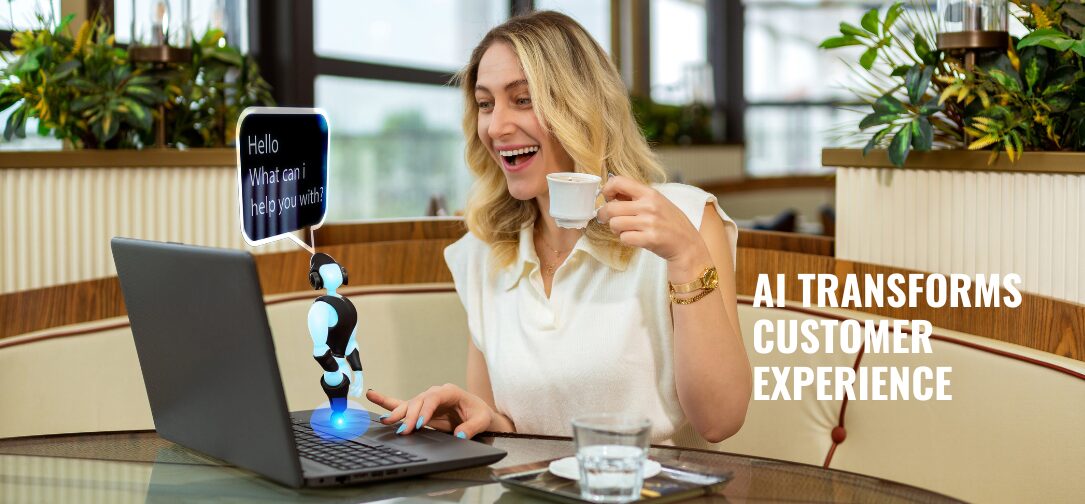The customer experience landscape is undergoing significant transformation because of advances in artificial intelligence (AI). As clients become more connected and require greater personalization, businesses are leveraging AI to anticipate needs and monitor interactions to ensure a seamless, evolving journey.
Here are five ways it’s set to revolutionize the customer experience.
1) Personalization Improvement
One of the most transformative powers of AI is its ability to analyze high volumes of data in seconds. In the next five years, businesses are predicted to use AI to create hyperpersonalized experiences that go beyond basic information.
AI algorithms continue to evolve in understanding individual customer experiences, behaviors, preferences and intent. This is achieved through machine learning that allows AI to focus on volumes of data and identify patterns that predict behavior and intent.
As algorithms improve, companies will be able to provide tailored content and product recommendations in real time. Currently, some manual assistance is still needed to provide personalized offers, but the shift from demographic-based targeting to behavior-driven engagement will enhance satisfaction and loyalty.
2) AI-Powered Customer Service Agents
Chatbots and virtual assistants are already involved in customer service, and several companies are using them in their communication and hiring processes. As time progresses, these systems will become more conversational and emotionally aware.
AI tools will be able to resolve complicated tasks with minimal human involvement through natural language processing (NLP) and machine learning applications. NLP has shown advancements since its inception in the 1950s, when it could only read grammar and syntax. It has grown to ingest deep learning and consumer language.
As customer demands grow, there is speculation that AI tools will be able to decipher their needs before they arise. For businesses, AI reduces operational costs, improves response times and maintains quality service 24/7. Customers get faster, more accurate and context-aware assistance whenever they need it.
3) Seamless Online Customer Experience
Customer loyalty is dependent on feeling valued, respected and understood. Presently, AI uses browsing and purchase history to understand what interests shoppers. Brands that want to thrive in the evolving industry should focus on how AI enhances the customer experience online because a loyal client means the brand will always have a sale.
AI can and will continue to guide customers through the buyer’s journey, from product discovery to offering recommendations that meet the shopper’s intent. While chatbots handle basic queries, conversational AI is known to help people decide based on their options.
AI is becoming more efficient in website design, making the user experience more pleasurable. The AI-driven accessibility features will ensure visitors can navigate the site with ease. As expectations grow for a more seamless buyer’s experience, companies will invest in AI at every level of the customer journey — anticipating needs, minimizing effort and ensuring consistent, high-quality interactions.
AI is also transforming more personal digital customer experiences, such as dating apps. By analyzing user preferences, chat history and behavioral cues, AI matches individuals more accurately with compatible partners. Whether shopping, seeking service or finding connections, AI is making online experiences smoother and more meaningful.
4) Predictive Customer Insights
Another of AI’s powerful tools is using past data to anticipate future actions. By 2028, 92% of companies plan to increase their AI investment. In the future, businesses will no longer react to customer intent but shape it. AI can analyze shopper patterns, sentiment and frequency. This knowledge will allow them to intercept visitors before they leave the page.
Companies react to human patterns based on monitoring their behaviors, but AI is expected to match and improve people’s tasks within the next five to 10 years. If AI can read them better than other humans, this kind of proactive engagement will help businesses transform the customer experience by building trust and addressing potential issues.
5) Human Robots Become Real to Customers
Humanoid robots, which once seemed like a theory, are becoming more of a reality. In 2021, Tesla announced a plan to produce Optimus robots by 2025 and develop 50,000 units by 2026. It’s predicted that there will be over 100,000 humanoid robots in the world by 2030.
Customer experience enhancements have been visible on digital platforms, but human robots are expected to become a reality. Over the next five years, humanoids powered by AI could become prevalent in retail and other environments. This could be the start of bridging the gap between digital intelligence and physical service.
AI Will Power Future Customer Experiences
In the next five years, AI will fundamentally transform how businesses engage, understand and serve their clients. From intelligent digital assistants to emotionally aware robots, AI will enhance the customer experience, making it a seamless journey.
Companies that embrace this change are bound to succeed in shaping the customer experience.



































